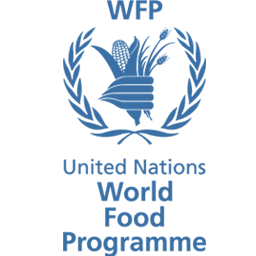
The United Nations World Food Programme is the world's largest humanitarian agency fighting hunger worldwide. The mission of WFP is to end global hunger. Every day, WFP works worldwide to ensure that no child goes to bed hungry and that the poorest and most vulnerable, particularly women and children, access and consume diverse nutritious food to avert double burdens of malnutrition. In Ethiopia, an estimated 70 percent of the population are employed in the agriculture sector (crops and livestock). In addition, much of the arable land is rain-fed with only 2 percent irrigated while with much of the cultivated land occupied by smallholder farmers (96 percent). Furthermore, an estimated 20 million people in Ethiopia require humanitarian assistance of which 9.8 million people are largely due to severe drought effects. Ethiopia, like any other sub-Saharan country remains extremely prone to cyclic effects of climate change with impacts varying across the different regions.
Despite these challenges, Ethiopia has made significant development gains in recent decades, leading to important progress towards reducing poverty rates of above 20% between 2000-20151 and a 55% reduction in the Global Hunger Index since 20002. Progress has been registered in cereal production from 10.9 million metric tons (mt) in 2000/01 to 29.7 million mt in 2019/203 with increased consumption and dietary diversity contributing to significant health advancements. The percentage of households that are food energy deficient has dropped dramatically from 64% in 2000 to 40% in 20164 and promising improvements have also been noted in children’s nutrition, where rates of undernutrition among children under five decreased significantly from 41% in 2000 to 24% in 2016.
WFP Ethiopia Country Office has supporting Climate Change Adaptation intervention Horn of Africa Risk Transfer for Adaptation (HARITA) which evolved into R4 Rural Resilience Initiative focusing on productive safety net intervention (Disaster Risk Reduction, Risk Reserves – Village Economic and Savings Groups, Prudent Borrow – Formal Credit and Risk Transfer – Insurance). Most recently the CO with technical support HQ developed a Satellite based Index Insurance for Pastoralists in Ethiopia (SIIPE) avert risk averseness of (agro) pastoralists to climate shocks that have repeatedly experienced huge losses of livestock due to insufficient folder and water. The CO is also working with the Social Protection team with support from HQ to develop meso level insurance product that will be integrated to the existing shock responsive Productive Safety-Net Programmes (PSNP). Integration of the three financial services originally conceptualized under the R4 is key in all the existing CCRB interventions as they will continue acting as key and strategic enablers.
ORGANIZATIONAL CONTEXT
This assignment will involve providing technical support role to the Market Access workstream of the SAMS (Smallholder Agriculture Market Support). In addition, the assignment will also include a strategic technical lead when delegated upon by the Team Lead to adequately integrate nutrition, gender, disability, women, and youths aside innovation, insurance, financial services, and inclusion.
JOB PURPOSE
Under the direct supervision of the Team Lead: Food Systems and Agriculture Support (Smallholder Agriculture Market Support) in close liaison with the Team lead: Changing Lives. This assignment will involve providing technical support role to the Market Access workstream of the SAMS (Smallholder Agriculture Market Support). In addition, the assignment will also include a strategic technical lead when delegated upon by the Team Lead to adequately integrate nutrition, gender, disability, women, and youths aside innovation, insurance, financial services, and inclusion.
• Support the Cooperative Promotion Agency and Bureau of Agriculture, Natural Resource Management to strengthen Agribusiness Systems and market linkages.
• Provide operational support on tailored services and information that includes extension, nutrition and markets to the participating farmers and market actors that includes investor and Agro-dealers.
• In close liaison with the Programme Policy Officer (Agriculture Productivity and Production) support adoption and utilization of sustainable post-harvest technologies by participating farmers to increase quality and quantity of commodities grown and enhance their market viability (Better access to markets and increased income).
• Support and facilitate access to affordable financing for the participating farmers to access and aggregation equipment.
• Support development of capacity needs assessment tools for identifying, assessing, and strengthening aggregator/Agro-dealers performance.
• Support strengthening of capacities for Agro-dealers and establish an efficient private sector led distribution network for Post-harvest Management (PHM) equipment.
• Support field offices through the relevant focal persons in strengthening market linkages and increase incomes by building and/or maintaining strategic partnerships with key market actors that includes private sector aside WFP through its Local Regional Procurement and Policy (LRPP).
• Ensure the market access elements are adequately and effectively integrated in the Activity 5 M&E plan and system, including the impact evaluation.
• Support the provision of training to field WFP at staff as well as Cooperating Partner staff in the appropriate implementation of the market access interventions guided the Food Systems strategy 2023-2025.
• Support the review and finalization of Field Level Agreements (FLAs) in close liaison with field office relevant staff for the implementation of integrated smallholder farmer programme across targeted regions.
• In close liaison with Team Lead and relevant field office staff, monitor the Cooperating Partner profiling, capacity assessment and evaluation based on WFP guidelines including maintaining data and records on evaluation.
• Support the tracking of expenditures through periodical reviews of fund consumption reports, undertaking of reconciliations as well as raising of advance payment for the Cooperating Partners.
• Provide technical support to Cooperating Partners and WFP’s field staff through supervisory support monitoring missions to ensure successful implementation of market access interventions.
• Support documentation of the lessons learned and best practices emanating from the Food Systems and Agriculture Livelihoods (Smallholder Agriculture Support) programme implementation.
• Facilitate Team Leads’ participation in inter-agency coordination meetings and missions specifically on Integrated Smallholder Farmer Support covering crop and livestock value chains
• Support strategic engagement with relevant government and United Nations agencies at the federal level including Food and Agriculture Organization (FAO), International Fund for Agriculture Development (IFAD), Agriculture Transformation Institute (ATI).
• Perform any other duties as assigned by the Team Leads and Deputy Country Director (Changing lives).
Education:
• Advanced University degree in Development Studies, Economics, Agriculture, Environmental Science, Social Sciences, or other field relevant to international development assistance, or First University Degree with additional years of related work experience.
Experience:
• At least 3 years of progressively responsible experience in programme related functions of which significant experience (2 or more years) must be related to resilience building, agricultural value chains, market linkages for smallholder farmers/(agro) pastoralists, social protection to achieve food security and/or nutrition objectives.
• At least two to three years of postgraduate professional experience in programme related functions including resilience building, agricultural value chains, market linkages for smallholder farmers/(agro) pastoralists.
• Experience working with government in implementing resilience, social protection, climate risk management and disaster risk reduction interventions.
• Experience in developing, establishing, strengthening, and maintaining relationships with a variety of stakeholders: governments and/or humanitarian & development stakeholders, preferably related to livelihoods and social protection programming.
Competencies:
• Excellent written and oral communication and presentation skills.
• Strong analytical and negotiation skills.
• Resourcefulness, initiative, maturity of judgement.
• Ability to work with minimum supervision as well as ability to supervise and train support staff; and to work effectively with people of different nationalities and cultural backgrounds.
• Demonstrated ability to develop and maintain effective working relationships with counterparts and staff within the office, host government, donors, other UN agencies, private sector and NGOs/CSOs.
Language:
• Fluency in both oral and written communication in English and the local language.



